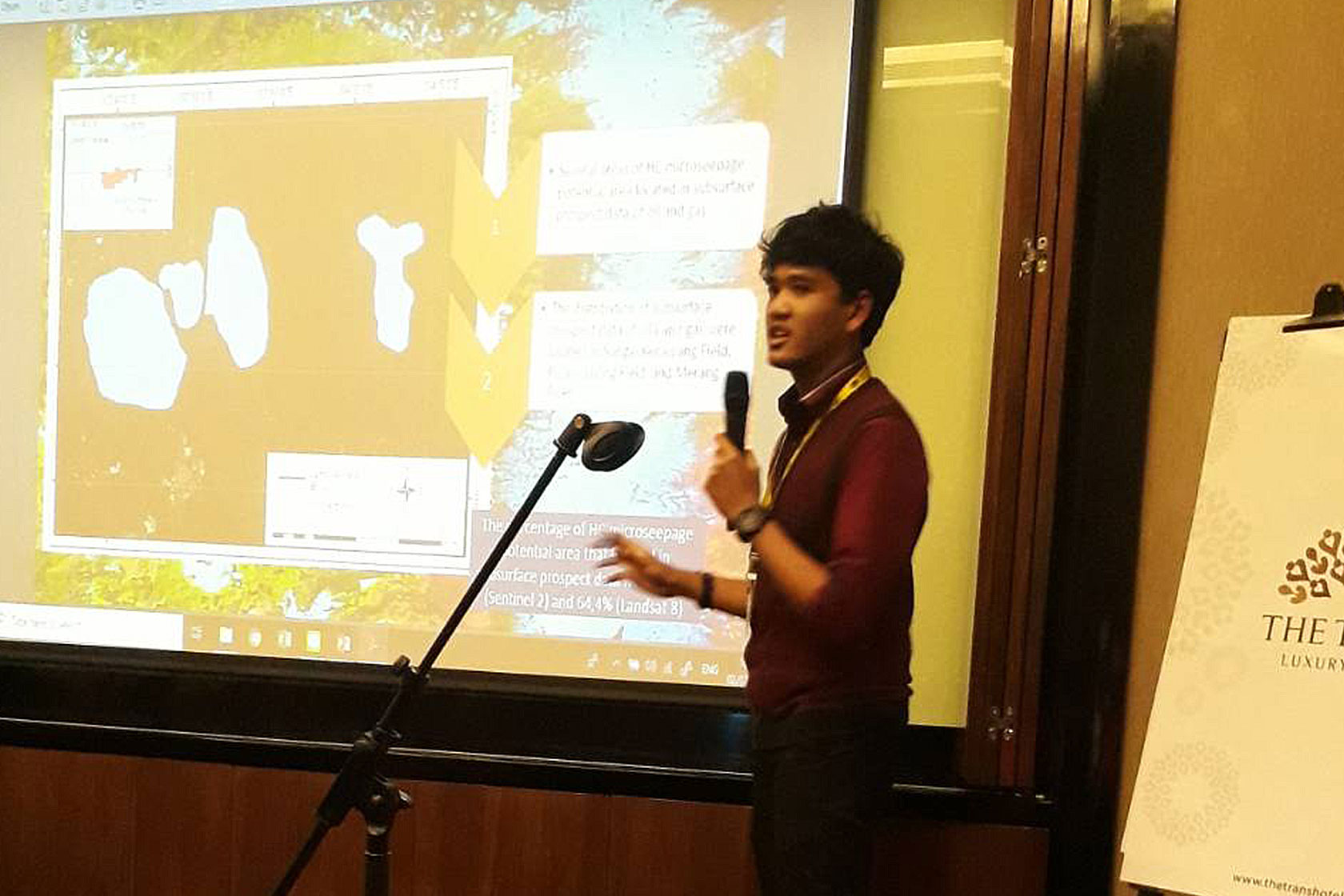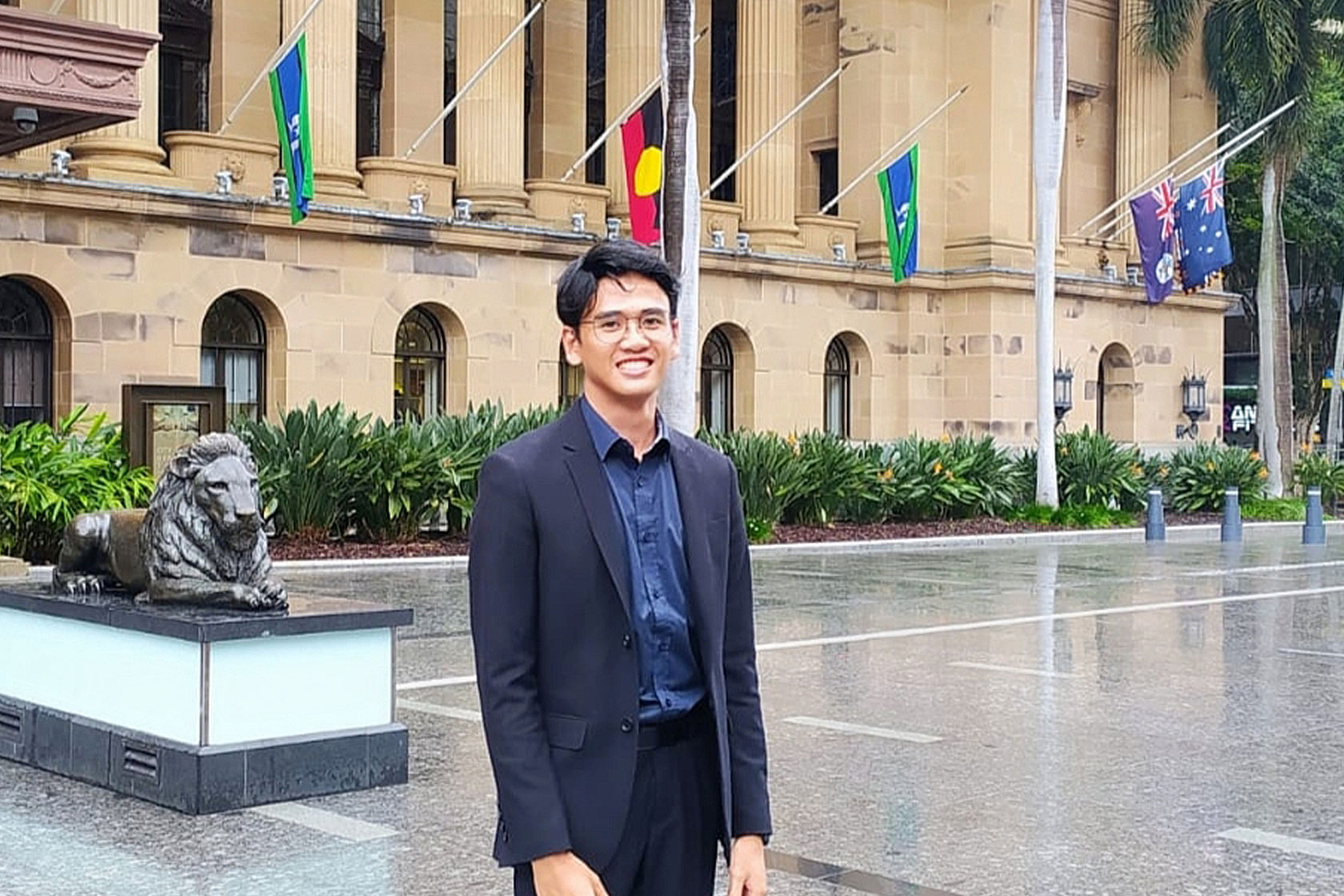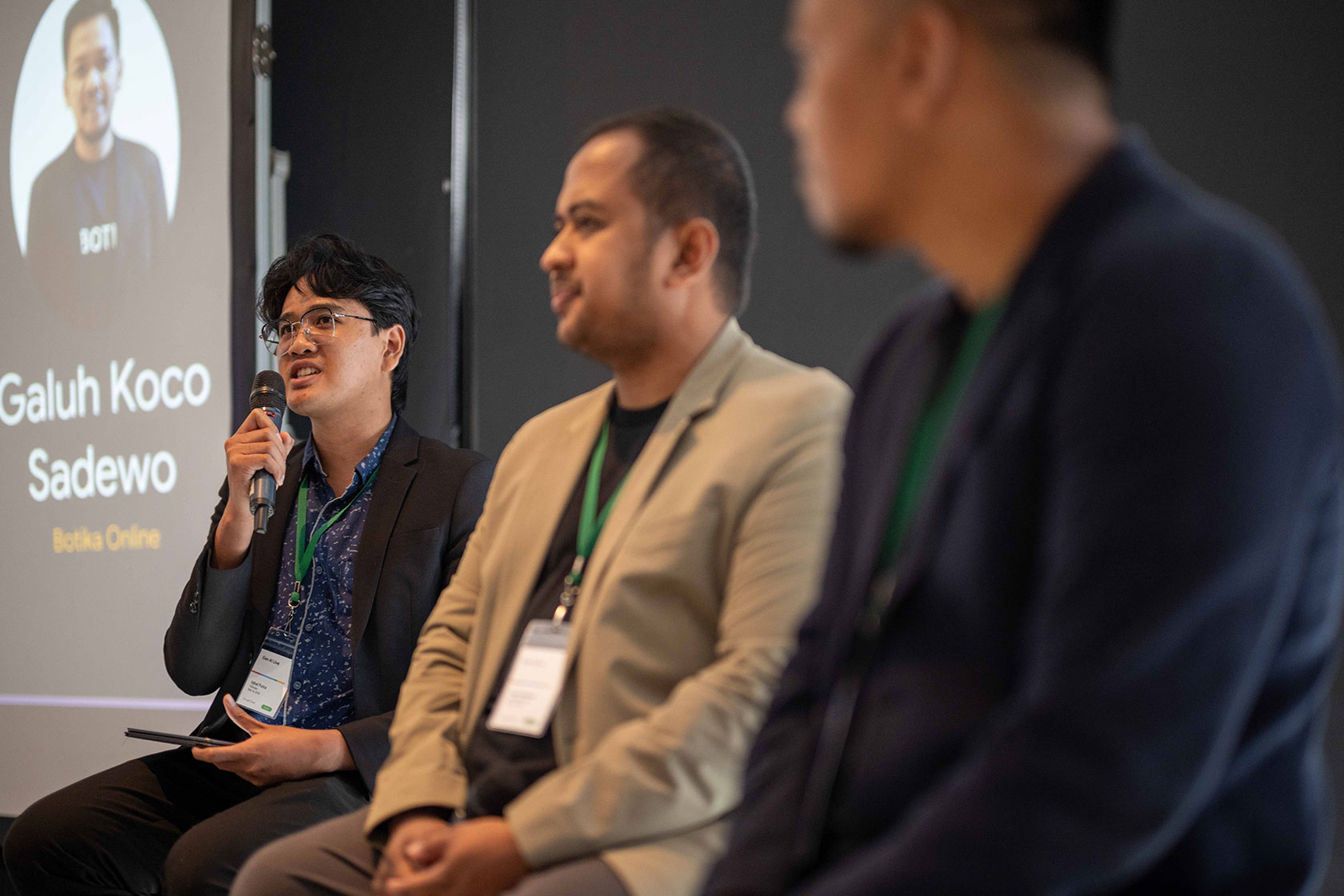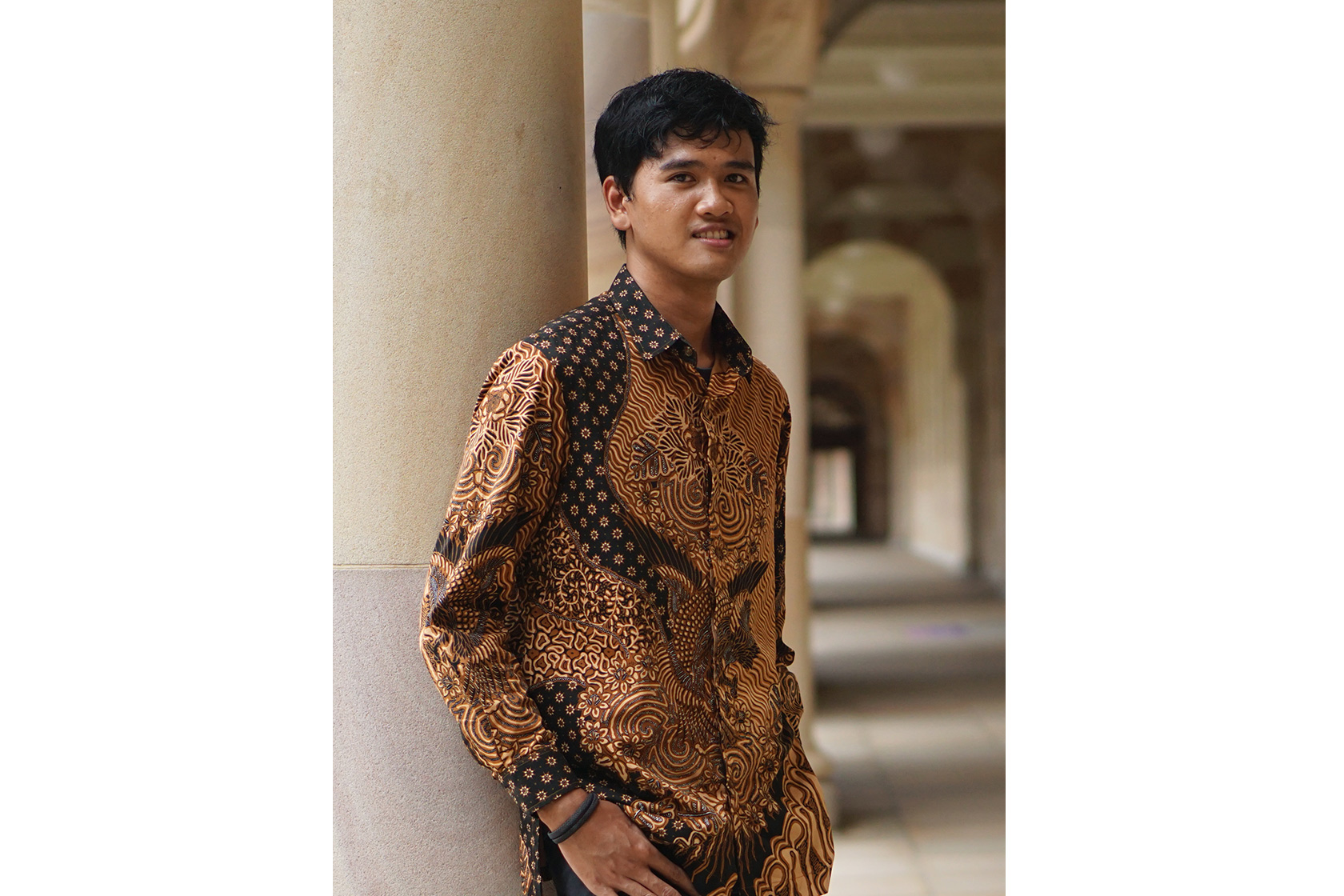As a teenager, Muhammad Iqbal Januadi Putra was already fascinated by geography books and observing the Earth’s surface through satellite imagery on Google Earth.
‘My love for geography continued, leading me to pursue a bachelor’s degree in geography at Universitas Indonesia,’ recalled Iqbal.
During his undergraduate studies, Iqbal successfully developed a method to detect oil and gas reservoirs on land using satellite imagery. In 2018, he began working as a GIS and remote sensing technical staff member at the Ministry of National Development Planning (Kementerian PPN/Bappenas).
While working in government, Iqbal realised that Indonesia needed a workforce skilled in emerging new disciplines.
‘Emerging fields such as artificial intelligence (AI) and big data were booming. A new intersection was also born between AI and geospatial information science, known as GeoAI, or AI specifically applied to the geospatial field,’ Iqbal explained.
He decided to pursue further study in Australia and was awarded an Australia Awards Scholarship. In 2020, he began a Masters in Geographic Information Science and Cartography at the University of Queensland.
Gaining Confidence with an Australia Awards Scholarship
In addition to the support he received as an Australia Awards Scholarship recipient, Iqbal felt that his scholarship also boosted his confidence. He strived to maintain the excellent reputation of the program, which is well regarded by academic communities in Australian universities.
‘This confidence encouraged me to apply for the 2021 International 19th SuperMap Geographic Information System Contest, in China, where I won first place in the paper category[1],’ shared Iqbal.
Iqbal entered the competition with his campus colleague, Evelyn Alicia Gómez Juárez. The pair met through their roles as teaching assistants. Their paper, ‘Shoreline Retreat Forecasting due to Climate Change in North Stradbroke Island, Australia,’ predicted future effects of climate change on the Queensland island.
During his studies in Australia, Iqbal noticed significant differences in the communication modes between universities in Australia and Indonesia.
‘Compared to Indonesia, where communication is often one-directional from lecturers to students, Australian universities have a more 2-way, egalitarian communication style. Assessment systems are also more open and transparent. Students can challenge and discuss grades with lecturers if they are dissatisfied. Lecturers are very open to hearing students’ arguments,’ Iqbal observed.
Aside from focusing on his thesis and coursework, Iqbal took the initiative to become a teaching and research assistant at the University of Queensland Centre for Natural Gas. He was also active in the University of Queensland Indonesian Student Association and the Indo Angklung Brisbane Community, a group promoting Indonesian culture through musical performances.
Transforming Industries from Agriculture to Retail
After completing his studies in Australia and returning to Indonesia in January 2022, Iqbal joined Esri Indonesia, a leading global company in the geographic information system field.
‘My masters thesis in Australia was closely related to remote sensing, and at the time, there weren’t many employees at Esri Indonesia with strong technical knowledge in this area,’ Iqbal shared.
Just a month into his new role, his manager asked him to work on a GeoAI project for a client that was a major agricultural company in Southeast Asia.
‘Our client had been using satellite imagery data to manually digitise and annotate their vast plantation areas, which could take years to complete,’ Iqbal explained. ‘By adopting GeoAI technology, they were able to automatically detect plantation areas using satellite imagery.’
Another breakthrough Iqbal introduced at Esri Indonesia was a model to assist retail and financial services clients in creating more detailed customer insights.
‘I initially presented this idea to my senior manager, drawing on knowledge I gained during my studies in Australia,’ Iqbal said.
‘With geospatial data analysis, our clients can gain more advanced customer segmentation, identifying which customers are still receptive to certain products and which have grown disinterested, requiring different interventions.’
Continued Collaboration with Australian Connections
Esri Indonesia has since applied this model of geospatial data analysis to several projects, helping to grow its reputation for innovation. Iqbal added that he continues to collaborate with his university peers, who now work for Esri Australia.
‘These connections have been incredibly valuable in my role at Esri Indonesia, particularly when it comes to leveraging advanced analytics in the electricity sector. Networking with my friends at Esri Australia has allowed me to learn from their experiences and successes, which I can then adapt to our local context,’ Iqbal explained.
In one case, Esri Australia successfully implemented an advanced analytics solution for optimising electricity grid management. Its system integrated real-time geospatial data with predictive analytics to monitor grid performance, identify potential failures, and optimise energy distribution. The solution improved efficiency and reliability, and was work that Iqbal was able to closely observe.
Becoming a Subject Matter Expert in Geospatial Science
Since early 2022, Iqbal has been volunteering with the ’Indonesia Mengglobal’ community, providing personal mentoring to young Indonesians who aspire to study overseas.
Some of his mentees have successfully won Indonesian Government scholarships to pursue further studies in the United States, Australia and Indonesia.
Having delved deeper into his field, Iqbal now recognises the critical importance of mastering IT skills, which are closely linked to geographic information science.
‘Moving forward, I want to gain more exposure to the IT industry. I’m keen to develop a more holistic understanding of how the IT industry operates,’ Iqbal explained.
‘In the long term, I plan to pursue a PhD with the goal of becoming a subject matter expert in geospatial information science. I understand that achieving this requires strong credentials, which is why I want to focus on earning a PhD first.’
[1] http://www.giscontest.com/en/award/2021/





 From Geography Enthusiast to Revolutionising Industries with Geospatial Science and Technology
From Geography Enthusiast to Revolutionising Industries with Geospatial Science and Technology
